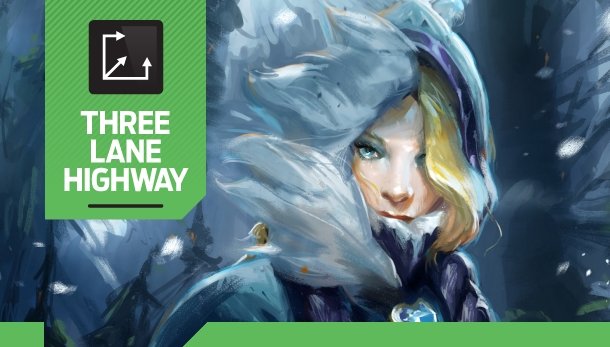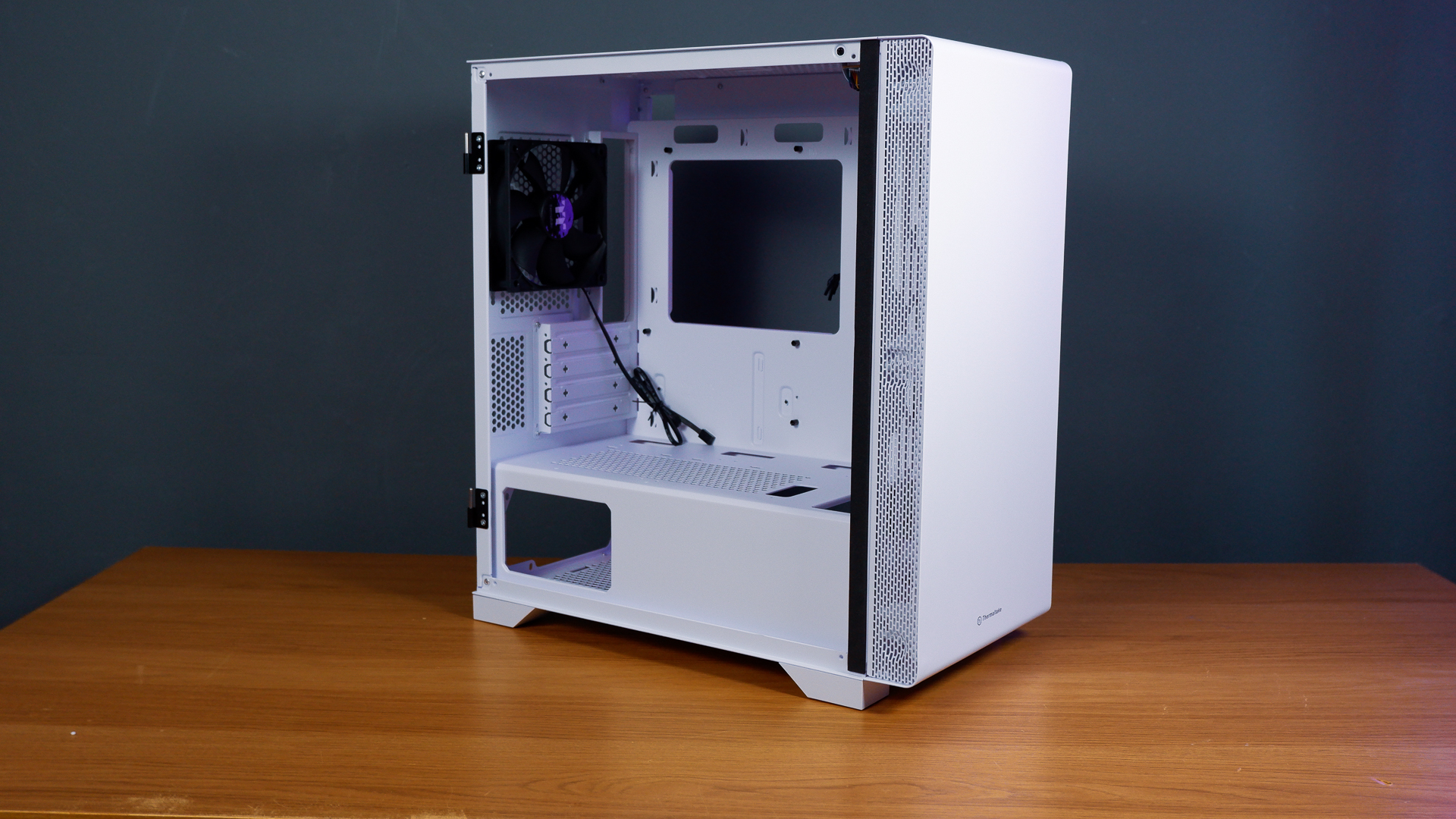Three Lane Highway: why Dota 2 isn't really about heroes at all

Three Lane Highway is Chris' sometimes silly, sometimes serious column about Dota 2.
It is the most human thing in the world to want to be the coolest person in the room. Competition for status is written into our society and culture. It is why we valourise the assertion of individual will and downplay collective success. It's how teenagers figure out who they are. It's how democracy (sort of) functions, how movies get made, how lies pass into general acceptance. It's a process we can't shake, a process that generates politicians and celebrities and bullies and—to the point—some really, really shitty Dota players.
Dota 2 is about other people. Its strangest contradiction is that it demands a huge amount of collaboration and selflessness but that the loudest praise will always be reserved for individual people and individual plays. This contradiction is how the same crowd that went wild for fountain-hooking at last year's International can then decry the tournament's eventual champions as rats for making a series of solid if unflashy strategic decisions. We're trained to praise the exceptional over the capable, to chase exceptional victories instead of, you know, victories. This is one of those lazy default positions that demands real thought to conquer. It's essential to get over yourself in order to be any good at Dota, but doing so means shaking yourself out of the notion that a competitive game is there to give you what you want. It means losing the idea that you are the hero.
When a game becomes a sport, it sheds many of the ideas that come with being a commercial entertainment product. In sport, you don't assume that everybody who takes part has a right to win or even a right to have everything their way. These assumptions are common in gaming, however, legacies of the notion that the customer knows best; that the player is the person in charge. Yet in Dota, as in sport, there will always be people who try to buy in to the kind of legitimacy that only practice can really earn; who believe that they can warp sport into a game that they control. The guy who buys lots of Pudge cosmetics and locks him at the start of every game is the same guy who shows up to a tennis court with expensive gear and no idea what he's doing.
Pudge is the most popular hero in the game by an order of magnitude because he's Dendi's hero, even though Dendi rarely plays him competitively; because he represents the lone skillful player rather than the boring collective. Yet locking Pudge is also shorthand for a naive and solipsistic view of the game for exactly this reason—it indicates that somebody is incapable of putting the game at hand ahead of the fantasies that they'd like to entertain about themselves.
This is where the nature of videogames—and, in particular, Dota's origins as an RPG-RTS hybrid—complicate things even further. I used to try to embody myself in every competitive game I played. I had a couple of boring and unoriginal ideas about who I wanted to be—the assassin, the lone wolf, the rogue agent—and I bullishly stuck to them regardless of my success level or the needs of the people around me. I slipped into scrubland , to borrow David Sirlin's use of the term. I wanted to win on my own terms, not somebody else's.
To an extent, this is reasonable. The promise of an RPG is experiencing adventure and triumph as an idealised version of yourself; the appeal of an RTS is in seeing your strategic mind actualised in the movement of pieces on a board or map. I can look at Dota 2's roster of heroes and see myself in some of them but not others. I might want to be Storm Spirit, and decide that Storm Spirit is who I'm going to play, but then I'm going to learn that I'm really Dark Seer. I'm really Phoenix. I'm really Centaur Warrunner. I'm really Mirana. I'm really whoever the hell my team needs me to be.
Keep up to date with the most important stories and the best deals, as picked by the PC Gamer team.
Playing as part of an organised team has taught me a lot over the last couple of weeks, but the biggest thing I've learned is that it's wins that matter, not people or plays. Dota 2 is a game about looking at five players and five heroes and figuring out how to arrange them so that the other guy's magical rock garden blows up. That's all there it is to it—but resolving that formula requires selflessness and collaboration. It requires individuals to give up their individuality in service to a greater goal, and that is why it is such an uphill struggle when you're queuing for matches by yourself. Individualism is the norm; the dream that this time—this time!— I'm going to be the hero is the game's most crooked draw.
If you feel like you can only play a particular kind of Dota, force yourself into the unfamiliar. Play Single Draft, or Least Played, or something. If you only want to play a particular kind of Dota, then understand that you're waiving your right to complain when games don't go your way. Dota, like society or any other cooperative enterprise, does not function when individuals are only looking out for themselves. I appreciate that I am probably going to piss off a bunch of libertarians by framing the issue in that way, but I'm okay with that .
The really cool thing about videogames is that they can be used as a way of practicing shifts in behaviour or thinking that can be mirrored in other contexts. The game is victim to all sorts of social and cultural pressures that bring about undesirable traits in its players, but it also exists in dialogue with those pressures—it is possible, by learning to put other people before yourself in a videogame, to get some sense of what that change might look like in the rest of your life.
To read more Three Lane Highway, click here .
Joining in 2011, Chris made his start with PC Gamer turning beautiful trees into magazines, first as a writer and later as deputy editor. Once PCG's reluctant MMO champion , his discovery of Dota 2 in 2012 led him to much darker, stranger places. In 2015, Chris became the editor of PC Gamer Pro, overseeing our online coverage of competitive gaming and esports. He left in 2017, and can be now found making games and recording the Crate & Crowbar podcast.


